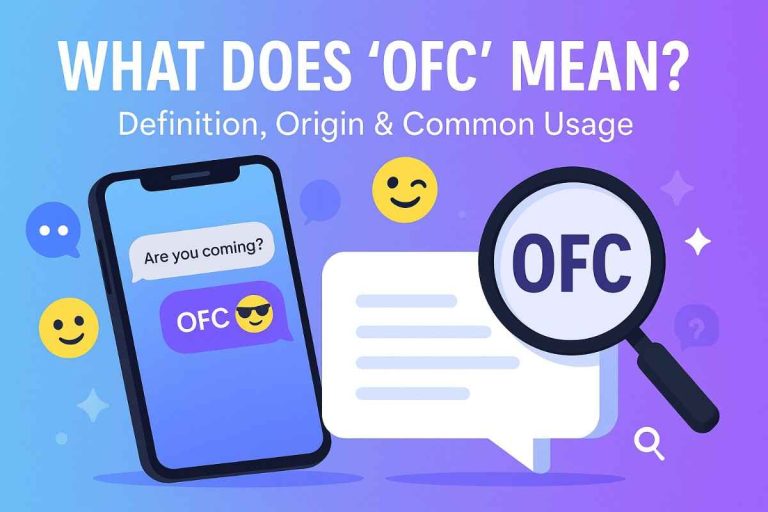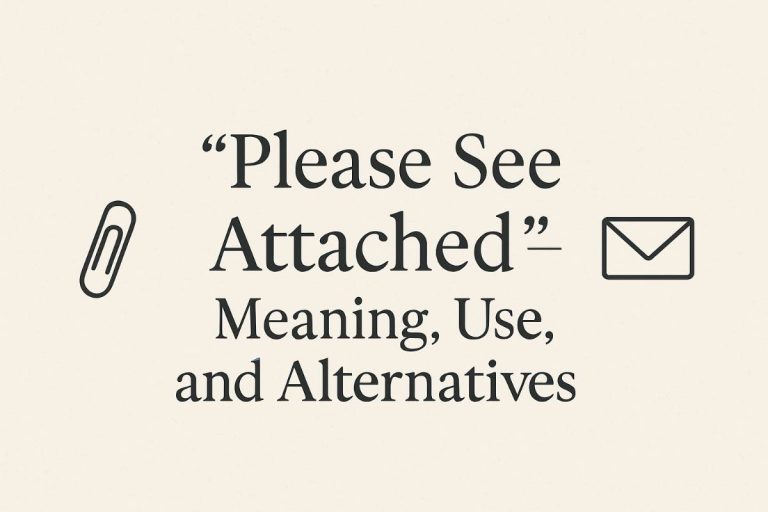Creative Ways to Say ‘I Am Honored’: 21 Alternatives You’ll Love
The phrase “I am honored” is a polite way to express gratitude and appreciation. It is often used to acknowledge someone’s praise or to show respect for a position or opportunity. While it is a sincere and respectful expression, there are times when it might feel too formal or not quite the right fit. Depending on the situation, there may be better alternatives to use in professional settings.
In this article, we will explore the meaning of “I am honored,” when to use it, and share 21 professional alternatives that you can use to convey appreciation, respect, and gratitude. We’ll also cover simple and polite responses to “I am honored” when it’s said to you.
What Does “I Am Honored” Mean?
“I am honored” is a phrase used to express respect and gratitude when someone is given an important role or privilege. It’s a way of acknowledging that a particular event, gesture, or recognition is seen as special or meaningful.
For example, if you’re asked to speak at an event or receive an award, saying “I am honored” shows that you appreciate the recognition and value the opportunity.
When to Use “I Am Honored”
“I am honored” is commonly used in situations where someone is given a privilege, award, or recognition. It’s appropriate in formal settings, such as in speeches, awards ceremonies, or business events, where you want to convey sincerity and respect.
However, the phrase may seem too formal or unnecessary in more casual or everyday conversations. For example, if a colleague simply thanks you for a favor or small gesture, responding with “I am honored” may sound out of place. Understanding when and where to use this phrase can help you come across as genuine and appropriate.
21 Professional Alternatives to “I Am Honored”
While “I am honored” is often the go-to phrase for expressing gratitude, it’s important to have alternatives that suit different situations. Here are 21 professional alternatives to consider:
1. “I appreciate it”
Meaning: Expressing gratitude for the opportunity or recognition. Explanation: A simple and professional way to acknowledge appreciation. Scenario Example: After being invited to a leadership meeting, you could say, “I appreciate it.” Tone: Grateful and respectful.
2. “I’m grateful for this opportunity”
Meaning: Acknowledging the chance or privilege offered.
Explanation: This phrase is ideal when you want to show gratitude for a specific opportunity.
Scenario Example: When asked to lead a team project, you might say, “I’m grateful for this opportunity.”
Tone: Appreciative and professional.
3. “Thank you, I’m humbled”
Meaning: Showing that you are both grateful and slightly surprised by the honor.
Explanation: A humble way to convey appreciation and acknowledge the significance of the recognition.
Scenario Example: If given an award at a company event, you might say, “Thank you, I’m humbled.”
Tone: Humble and thankful.
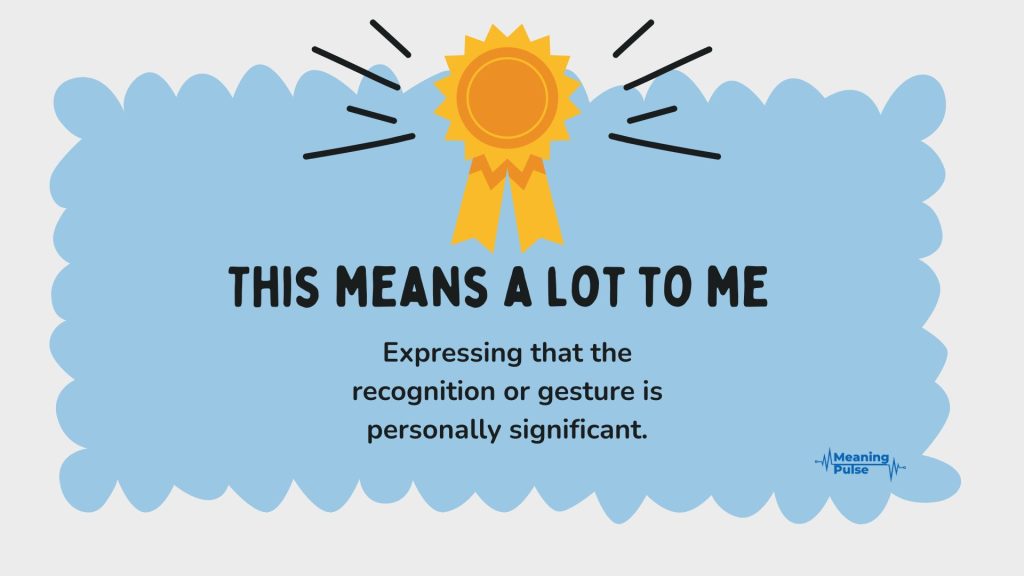
4. “This means a lot to me”
Meaning: Expressing that the recognition or gesture is personally significant.
Explanation: This phrase is heartfelt and adds a personal touch to your appreciation.
Scenario Example: After receiving a positive feedback from your boss, you could say, “This means a lot to me.”
Tone: Sincere and personal.
5. “I’m thankful for this”
Meaning: Expressing gratitude for the recognition or opportunity.
Explanation: A simple, effective way to convey appreciation.
Scenario Example: When someone offers you a leadership position, you can say, “I’m thankful for this.”
Tone: Polite and gracious.
6. “I am deeply appreciative”
Meaning: A more formal way of expressing gratitude.
Explanation: This phrase shows strong appreciation and can be used in more professional or formal settings.
Scenario Example: After receiving a prestigious award, you could say, “I am deeply appreciative.”
Tone: Formal and respectful.
7. “It’s a privilege”
Meaning: Acknowledging that the opportunity is one you hold in high regard.
Explanation: This is a more understated way to express that you value the recognition or role.
Scenario Example: After being appointed to a board, you might say, “It’s a privilege to serve.”
Tone: Respectful and modest.
8. “I’m honored to be part of this”
Meaning: Expressing appreciation for being included in something important.
Explanation: This is ideal for showing that you value being part of an event, team, or initiative.
Scenario Example: When invited to join a high-profile project, you could say, “I’m honored to be part of this.”
Tone: Grateful and positive.
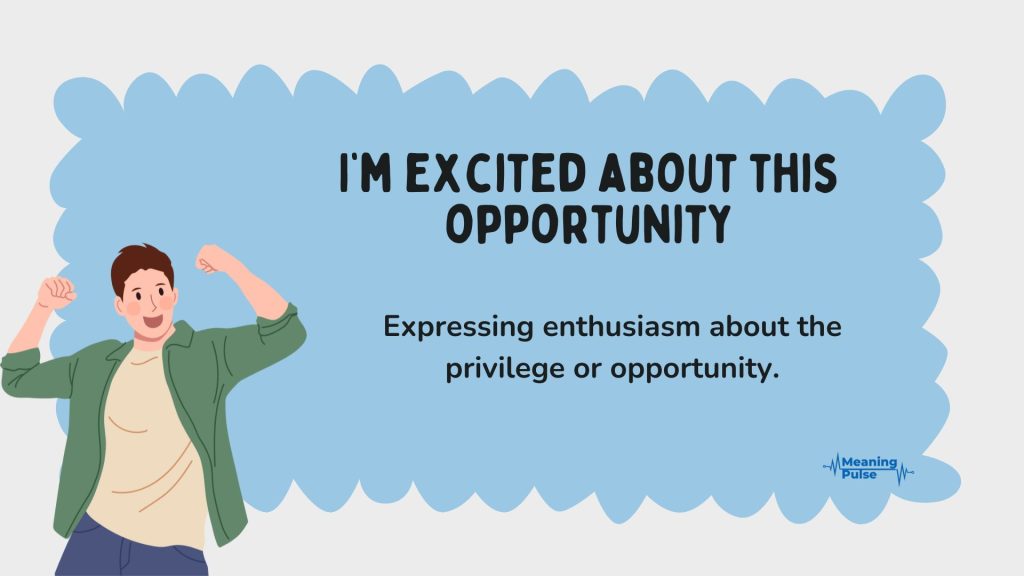
Find Out More: “Sorry to Bother You” – Phrase Meaning, Examples & Use
9. “I’m excited about this opportunity”
Meaning: Expressing enthusiasm about the privilege or opportunity.
Explanation: This phrase conveys excitement while also showing appreciation.
Scenario Example: After being selected for a new role, you could say, “I’m excited about this opportunity.”
Tone: Enthusiastic and upbeat.
10. “It’s an honor to work with you”
Meaning: A polite and appreciative way to show respect for someone you’re working with.
Explanation: This phrase is great when working with someone important or in a leadership role.
Scenario Example: When collaborating with a senior executive, you could say, “It’s an honor to work with you.”
Tone: Respectful and gracious.
11. “I’m thankful for your trust in me”
Meaning: Acknowledging the confidence someone has placed in you.
Explanation: This phrase is ideal for situations where someone offers you a responsibility or role.
Scenario Example: If a colleague asks you to lead a presentation, you might say, “I’m thankful for your trust in me.”
Tone: Grateful and professional.
12. “I feel privileged”
Meaning: Expressing that the opportunity feels special and important.
Explanation: This is another way to show that you value the opportunity or recognition.
Scenario Example: If asked to speak at an important event, you could say, “I feel privileged to be here.”
Tone: Modest and respectful.
13. “I’m flattered”
Meaning: Showing that you are appreciative of the recognition or compliment.
Explanation: A slightly informal yet still professional way to express gratitude.
Scenario Example: If complimented on your work, you might respond, “I’m flattered by your kind words.”
Tone: Humble and appreciative.
14. “This is a wonderful opportunity”
Meaning: Expressing excitement and gratitude for the chance you’ve been given.
Explanation: A positive, professional way to acknowledge an opportunity.
Scenario Example: After being chosen for a new assignment, you could say, “This is a wonderful opportunity.”
Tone: Positive and professional.
15. “I truly appreciate it”
Meaning: A straightforward and sincere way of expressing gratitude.
Explanation: This phrase can be used in both formal and informal situations to convey thanks.
Scenario Example: If a client gives you a compliment, you might say, “I truly appreciate it.”
Tone: Honest and polite.
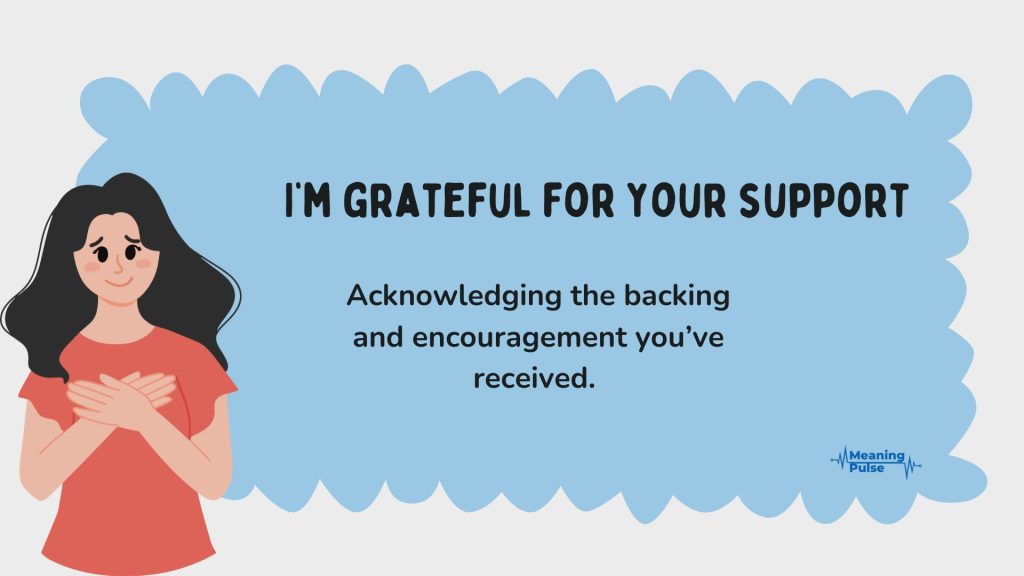
16. “I’m grateful for your support”
Meaning: Acknowledging the backing and encouragement you’ve received.
Explanation: This phrase is suitable for when you receive help or mentorship from someone.
Scenario Example: If a manager helps you with a project, you could say, “I’m grateful for your support.”
Tone: Appreciative and sincere.
17. “It’s a great honor”
Meaning: Another way to express deep appreciation for an important recognition or opportunity.
Explanation: This phrase is often used in formal speeches or public acknowledgements.
Scenario Example: After winning a professional award, you might say, “It’s a great honor to receive this.”
Tone: Formal and respectful.
18. “I’m very pleased”
Meaning: Showing satisfaction and happiness about an opportunity or recognition.
Explanation: This is a slightly less formal way to show you’re pleased with a situation.
Scenario Example: After being selected for a leadership role, you could say, “I’m very pleased to be chosen.”
Tone: Happy and appreciative.
19. “I’m truly honored”
Meaning: A slightly stronger version of “I am honored.”
Explanation: This phrase emphasizes a deeper level of appreciation and sincerity.
Scenario Example: When receiving a prestigious award, you might say, “I’m truly honored to be here today.”
Tone: Formal and sincere.
20. “Thank you for this incredible opportunity”
Meaning: Expressing appreciation for an opportunity you value highly.
Explanation: This phrase conveys that you understand the significance of the opportunity.
Scenario Example: If asked to represent your company at an international conference, you could say, “Thank you for this incredible opportunity.”
Tone: Grateful and respectful.
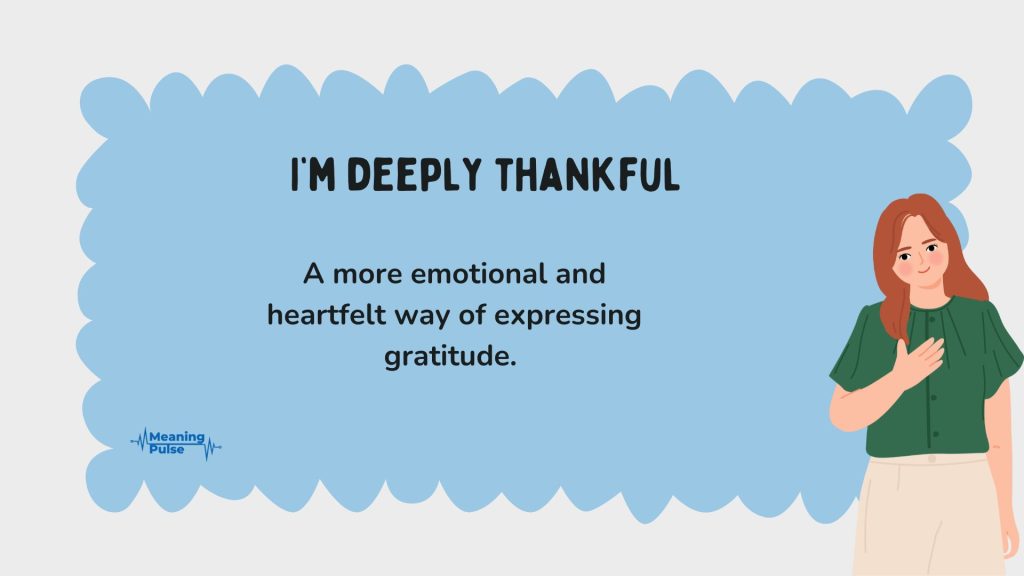
Explore This Topic: 21 Effective Ways to Say Thank You for Your Support and Encouragement
21. “I’m deeply thankful”
Meaning: A more emotional and heartfelt way of expressing gratitude.
Explanation: This phrase is ideal for expressing deep appreciation in a sincere manner.
Scenario Example: After receiving a significant career opportunity, you might say, “I’m deeply thankful for this.”
Tone: Heartfelt and sincere.
Simple and Polite Responses to “I Am Honored”
If someone says, “I am honored” to you, here are some polite responses you can give:
- “It’s my pleasure.”
- “I’m glad to be a part of this.”
- “The honor is mine.”
- “Thank you, it’s great to be here.”
These responses are polite and maintain a level of professionalism while acknowledging the compliment.
Conclusion
“I am honored” is a phrase that expresses respect and appreciation. While it’s a great choice for formal settings, sometimes it can feel too formal or out of place in certain situations. Luckily, there are plenty of professional alternatives that can convey the same sentiment, whether you want to sound more casual, enthusiastic, or humble. By understanding the context and using the right phrase, you can express your gratitude effectively in any professional setting.



